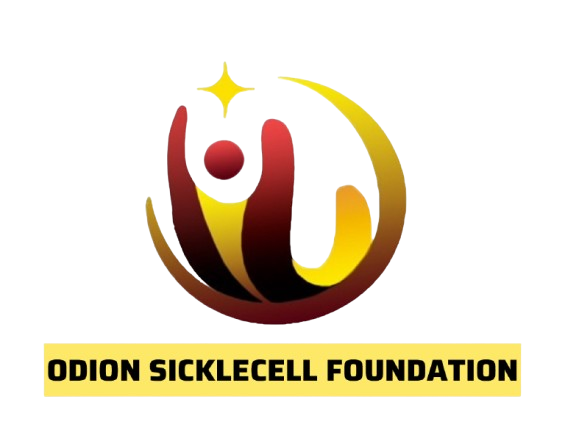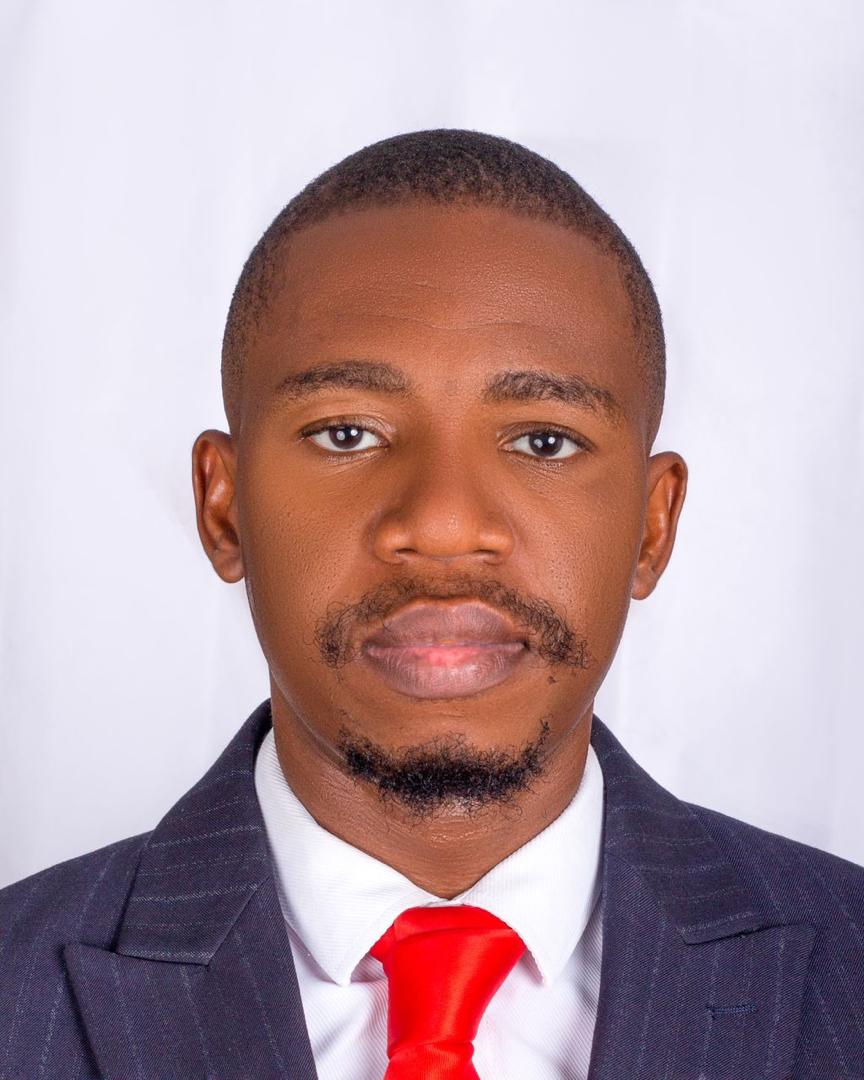Nigeria Tops the World in Sickle-Cell Cases
Amb. (Dr) William Odion Sounding the Alarm for Newborn Screening & Public Health Reform
Nigeria is widely recognized as the epicenter of sickle-cell disease globally. Recent studies place the country at the top of world rankings for both prevalence and mortality from SCD (sickle-cell disease).PMC+2ASHPublications+2 The urgency is not theoretical; it is affecting lives in every corner of the nation, from newborns to adults.
Ambassador (Dr) William Odion, founder of the Odion SickleCell Foundation, has stepped into this crisis not as a bystander but as a leading voice demanding systemic change. In recent public statements and media publications by The Guardian and TVC News, Nigeria leads the world in sickle-cell cases. He has called for an immediate rollout of universal newborn screening, public health policies that mandate early detection, and widespread adoption of the HPLC test (High Performance Liquid Chromatography) for genotype confirmation.
Here’s why his advocacy matters — and why the moment for action is now.
The Burden Nigeria Cannot Ignore
- Unmatched Prevalence
- Nigeria is home to one of the highest burdens of SCD in the world. The country records between 2% and 3% prevalence of the disease among its population. centerforpolicyimpact.org+2ASHPublications+2 Another study estimates that Nigeria sees 100,000 to 150,000 newborns born with SCD every year — nearly a third of all global cases. centerforpolicyimpact.org+2ASHPublications+2 Other figures suggest that over 4 to 6 million Nigerians live with the disease. Gavi+1
- High Mortality Among Children
- In Nigeria, SCD contributes heavily to under-five mortality. An estimated 490 deaths per 1,000 births in this age group are associated with SCD in certain regions. ASHPublications. Many affected children do not survive past infancy. The lack of early detection, delayed care, and complications such as infections and organ damage make SCD a silent killer.
- Carriers, Misdiagnoses, and Genetic Complexity
- Beyond those with the disease, a substantial portion of Nigeria’s population carries the sickle gene (trait). In some communities, up to 25% of adults carry the sickle cell trait (AS). PubMed+2PMC+2 Misdiagnosis is also widespread; in Lagos and other states, patients and parents often discover errors in reported genotype results, leading to tragic consequences. jpedres.org
- Limited Early Detection Systems
- Unlike many high-income settings, Nigeria does not yet have consistent, mandatory newborn screening in all states. Although newborn screening trials and pilot programs exist (for example, in Kano), PMC+1, full adoption remains a gap. Some states—like Oyo—are beginning to introduce mandatory neonatal screening post-birth. Facebook
- Chronic Resource Constraints
- Life expectancy for those with SCD in Nigeria pales in comparison to that in wealthier countries. Many face recurrent pain crises, organ damage, stroke risk, and frequent hospitalizations. PMC+3centerforpolicyimpact.org+3ASHPublications+3 Access to comprehensive care, hydroxyurea, safe blood transfusions, and specialized clinics is limited in many regions. centerforpolicyimpact.org+2ASHPublications+2
Amb. (Dr) William Odion’s Call to Action
Dr. Odion has leveraged media platforms to publicly demand that Nigeria treat SCD as the public health emergency it is. His core proposals include:
- Mandated Newborn Screening: Every newborn in Nigeria should be screened for SCD using a reliable, cost-effective method. The earlier a child is diagnosed, the sooner preventive care can begin.
- Advocacy for HPLC Testing: He stresses that individuals should not settle for basic tests with high error rates. The HPLC test should be the standard for genotype confirmation.
- Government & Institutional Support: Dr. Odion has appealed to federal and state governments, healthcare institutions, philanthropists, brands, and NGOs to support initiatives ranging from subsidized diagnosis to free care support.
- Public Awareness & Genetic Counseling: Education campaigns should reach every community, demystifying SCD, promoting trait testing pre-marriage, and reducing stigma.
- Collaboration with Media Channels: By referencing TVC News and The Guardian publications, Dr. Odion aims to keep the national conversation alive and mobilize informed citizens to demand change.
His work is not theoretical. It is already shifting the public narrative and motivating stakeholders to step up.
Why Newborn Screening Matters
- Early intervention saves lives: Babies identified in the first days of life can immediately begin prophylactic penicillin, pneumococcal immunizations, and caregiver education, drastically reducing mortality.
- Better long-term outcomes: Early screening allows for monitoring, preventive care, and timely management of complications like stroke or organ damage.
- Cost-effectiveness: The cost of lifetime care for an undiagnosed child with SCD far exceeds the cost of screening and early treatment.
- Data & Policy Building: Systematic newborn screening gives reliable data that helps governments allocate resources, plan interventions, and measure outcomes.
Nigeria is already participating in multi-national newborn screening initiatives like CONSAng (CONSA) to scale up screening programs across Africa. American Society of Hematology+1
What Nigerians Can Do Today
- Get Tested (HPLC)
- Even adults without symptoms should confirm their genotype using HPLC. This empowers informed marriage and family planning decisions.
- Advocate Locally
- Use community groups, churches, and social media to demand newborn screening in local hospitals.
- Support Foundations
- Partner with or donate to organizations like Odion SickleCell Foundation to sustain testing campaigns and support patients.
- Raise Awareness
- Share stories, statistics, and reliable media reports (like The Guardian article that profiles Nigeria’s SCD burden) to keep public pressure alive. The Guardian
- Engage Policymakers
- Write to your legislators, join health advocacy groups, and push for policies that make screening a birthright rather than a luxury.
Challenges to Overcome
- Funding & Infrastructure
- Nationwide screening demands resources, labs, trained staff, and supply chains for reagents and equipment.
- Equitable Access
- Rural and under-resourced states must not be left behind.
- Sustainability
- Pilot programs must transition into permanent, funded public health services.
- Cultural & Educational Barriers
- Misconceptions and stigma about genetic disease discourage testing and open discussion.
- Political Will
- SCD often competes with other public health priorities. It must be reframed as a national crisis.
The Stakes Are Too High
When Nigeria leads the world in SCD cases, it is not a badge of infamy; it is a call to arms. The suffering endured by patients and families is enormous: loss of life, financial burden, emotional trauma, and lost human potential. But changing the narrative starts with early detection and public will.
Every child who dies before age five because of undiagnosed SCD is preventable. Every family pushed into medical debt because the diagnosis came too late is a social failure. Every donor, brand, and individual who remains silent contributes to the cyclical tragedy.
Dr. Odion’s vision is clear: newborn screening should be as normal as vaccination. The government, private sector, and civil society must respond with urgency and scale.
#SicklecellAwareness #NewbornScreening #PublicHealthReform #GeneticTesting

